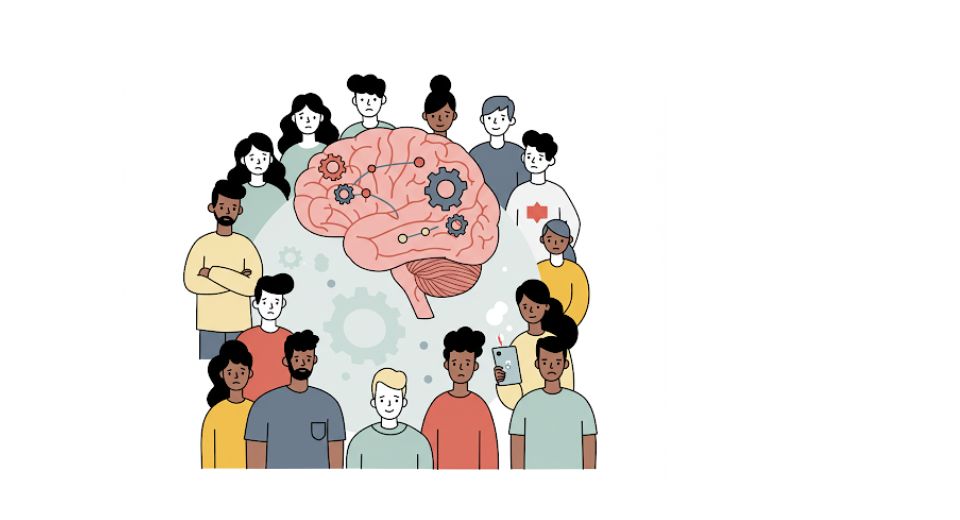
Apr 15, 2025

The latest insights from Metastat Insight suggest that the Global Behavioral Health Market is continuing to evolve in its approach towards mental health, including the tapestry of structures that sustain it and the progressive attention being given to care at all system levels. This shift is no longer confined to the clinical domain; communities, workplaces, schools, and families have begun to bear witness to this newfound complexity and layered character in behavioral health responses. The market in this context is defined not merely in terms of figures or transactional growth, but rather through the complex nuances of service delivery, innovations in care models, and the brighter growth in evolution of mindsets of the general public and institutions toward mental and emotional wellness.
With a broader recognition of behavioral health, service providers, practitioners, and policymakers have recalibrated their responses. Human behavior is too deep, compounded by environmental, social, and emotional stressors, to make for a straight path on which traditional health systems could fully operate. Out of this complexity came many forms of informal networks that seek to bridge clinical intervention and the lived experiences of those grappling with anxiety, depression, trauma, addictions, and mood disorders. Increasingly multidisciplinary, these networks are often threaded together with community-based outreach, peer support, and telehealth options that break geographical boundaries.
Much has happened because behavioral health has become an area of public discussion. Those that tend to the needs of their clients have found more willing partners within the community, who engage in conversation more freely, ask for help more freely, and are less fearful of the stigma attached to doing so. This support has fed innovation rather than overwhelming the system. Therefore, these services carry the personal touch and have leaned towards being individualized, thus taking into account not only medical history but also values, culture, and lifestyle. Thus the definition of what good care entails has expanded to incorporate those therapeutic approaches and recovery paths that previously would have been relegated to the furthest margins of the system.
Technology has made a noticeable imprint on the Global Behavioral Health Market. Virtual platforms have become increasingly significant in engaging patients and providers, especially where traditional clinics are few and far between. These platforms provide for live interactions, continuing care, and crisis response, often with a flexibility that was deemed impossible in behavioral health service delivery before. A whole other level of self-guided care has emerged with the help of mobile apps that track mood, help with mindfulness, or offer real-time coping strategies. While these digital tools cannot replace the clinician's role, they do provide continuity between sessions and encourage users to take a more active and empowered role in managing their wellness.
Behavioral health services have a connection with certain prevailing sociological structures; the partnership between public health and private organizations has certainly enhanced the breadth of the care... In some instances, partnerships have mandated that behavioral support be made available in settings such as schools, correctional facilities, or transitional housing programs, which demonstrates that mental health does not occur in a vacuum. These integrated efforts highlighted the social determinants of emotional health, such as poverty, housing instability, and systemic inequities in education access. Hence, now, behavioral health professionals are increasingly working across sectors, advocating for policies and practices aimed at addressing the root causes rather than just the symptoms.
Cultural shifts have also influenced the domain of behavioral health. Previously considered solely in clinical or pathological terms, those views have developed into more nuanced ones. Resilience, emotional literacy, and adaptive functioning would also be part of a wider definition of behavioral health. This more integrative view has allowed providers to relate to patients in other ways: less about "fixing" and truly about guiding, listening, and collaborating. It is supportive of a preventive orientation, where enhancing mental wellness becomes equally as important as treating the illness when it occurs.
Along with these changes in the last few decades, the professional workforce in the behavioral health system has also adapted. Roles are now widened, including not only psychiatrists and psychologists but also licensed social workers, behavioral therapists, counselors, peer advocates, and community health workers. Each plays a critical role in providing care that is context-sensitive and genuinely centered on the person. Therefore, training programs have changed such that workshops covering topics now include not only diagnosis and treatment but also cultural competency, trauma-informed care, and communication techniques that promote empathy rather than authority.
These shifts have been more or less successfully matched in funding structures and policy frameworks. Nevertheless, disparities still exist, especially in poorly served areas, and mostly toward sustainable investments in behavioral health systems. These sustainable investments should foster innovation, capacity development, and long-term planning for care continuity. This change in priorities makes it clear that behavioral health is no longer simply an add-on for physical care but rather an integral part of a comprehensive health care strategy.
The thorough findings given in the Global Behavioral Health Market Report presented by Metastat Insight articulate this responsive and grounded field in the practical, human-centered approaches. Hence, the way forward implies that the emerging new models of care and the growing consciousness should not just open the door for access but also open the window to reevaluate the prevailing values that sustain behavioral health systems.
Drop us an email at:
Call us on:
+1 214 613 5758
+91 73850 57479